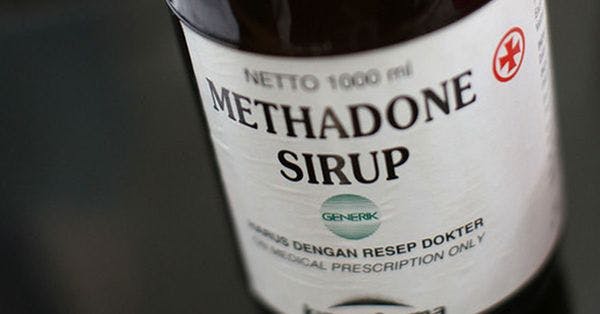Australian Department of Foreign Affairs and Trade - Flickr - CC BY 2.0
Kenyan civil society organisations call on the President to halt harmful reforms to the country's drug laws
RE: PETTITION AGAINST GRANTING OF PRESIDENTIAL ASSENT TO THE NARCOTICS, DRUGS AND PSYCHOTROPIC SUBSTANCES (CONTROL) (AMENDMENT) BILL 2020.
We jointly write to you as the Caucus on Harm Reduction and Drug Policy Reforms in Kenya (CHRDPR) an initiative that brings together individuals and institutional advocates of drug policy reforms in Kenya.
This is to humbly Petition you against giving presidential assent to the Narcotics, Drugs and Psychotropic Substances (Control) (Amendment) Bill 2020 that was passed by the National Assembly during the Committee of the whole house on 19 May 2021.
We laud your government’s efforts towards the eradication of illicit drug trafficking in Kenya, bearing in mind the harms of illicit drug trade and use on our youth and economy. We also loud the efforts of the legislature to curb illegal drug trade by the promulgation, and passing of the above mentioned Bill in an attempt to support your governments efforts to curb the illegal drug trade in Kenya.
However, your excellency, the legislative approach on the issue of drug use and the plight of persons with problematic substance use has ignored evidence of what works.
The punitive approach of having minimum mandatory sentences is misused by law enforcement to target low level offenders with small quantities of drugs including amounts for personal use. This diverts law enforcement efforts from traffickers, limiting the objective use of police, courts and scarce public resources. Overly punitive measures to fulfil objectives relating to drug control have and will continue to affect the poorest and most marginalised Kenyans; particularly women and young people should we fail to take advantage of this current opportunity to inform the law based on evidence. Although the changes propose a lower prison sentence for users, the increase in the minimum fine payable will guarantee mass imprisonment for economically overburdened women and youth.
Further, we commend the changes which now rightly recognize treatment in addition to voluntary rehabilitation for people in possession of small quantities of drugs for personal use. However, their introduction into law as an additional rather than an alternative to punishment is counterproductive to public health efforts. Kenya’s classification as a middle income country could soon impact access to funding for harm reduction programmes which are heavily funded by international development partners. Having sound legislative backing will catalyze greater commitment by the government of Kenya by establishing the most effective framework to sustain and expand comprehensive and coordinated harm reduction resources and services in Kenya.
It is established best practice that persons with substance use problems be diverted from the criminal justice system to public health interventions, which are readily available to your able ministry of health. The cost of keeping users in prison wastes limited resources that can be used to improve already strained health services including treatment and rehabilitation.
It is our submission that despite our efforts to sensitize legislators on the economic and social benefits of public health approaches for users, the amendments as proposed fails to;
- Make adequate provisions to address the public health needs of persons with problematic drug use contrary to article 43 of the constitution, which negates the whole object of reforming these individuals leading to relapse or even adverse impact to their health since these victims require treatment and not incarceration,
- Make adequate and intentional provisions to tackle the public concern of unnecessary incarceration of petty offenders who include individuals arrested with small quantities of drugs for personal use, which results in overcrowding of prisons with individuals who would otherwise be productive members of the community given effective support.
Your Excellency, the state has already implemented several interventions regarding treatment and reintegration of persons living with drug use disorders.
These processes have been ongoing for many years, which include inter alia,
- The Methadone programs in several counties,
- Establishment of guidance, counselling and rehabilitation centres in several counties.
The proposals that we have made shall have minimal fiscal allocation for implementation since the call is for the already existing infrastructure to be integrated in the criminal process as an alternative to incarceration. As such, the cost of implementation of these proposals shall be negligible, as it will seek to rely heavily on already existent Public Health infrastructure. Your Excellency in conclusion, it is our humble submission that the war against drugs can only be won through decisive action in regard to persons living with drug use disorders from a human rights and public health perspective, and more intentional tackling of trafficking. In this regard we humbly petition you to not assent to the bill as is, and refer it back to parliament to either:
- Undertake proper public participation which includes consultations with public health experts and affected communities for an informed perspective of what works in effectively addressing the issue of problematic drug use; or
- Re-draft the sub section on treatment and rehabilitation of persons arrested for possession of small quantities for personal use to avail effective alternative options and not additional punishment.
Signed by Caucus on Harm Reduction and Drug Police Reform in Kenya (CHRDPR), Nextgen Lawyers, Kenyan Network of People who Use Drugs (KeNPUD), VOCAL Kenya, Reachout Centre Trust, Teens Watch, New Leaf Rehab Centre Lamu, Muslim Education and Welfare Association.
